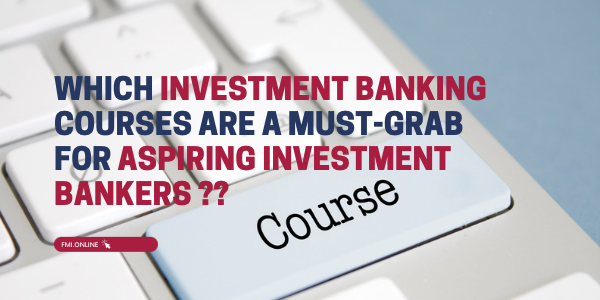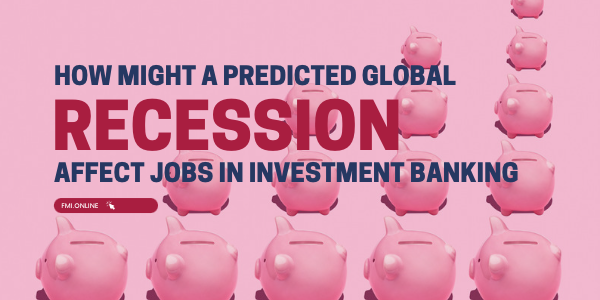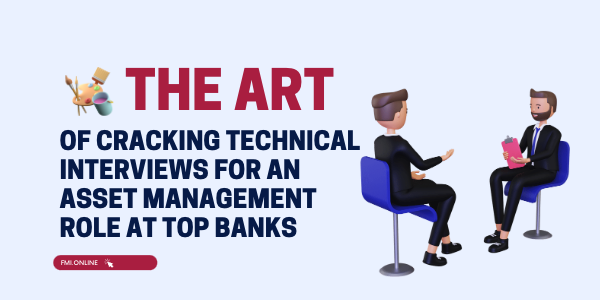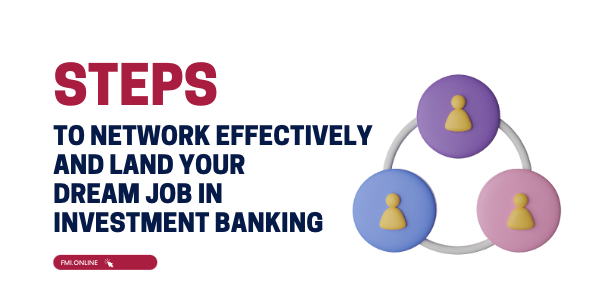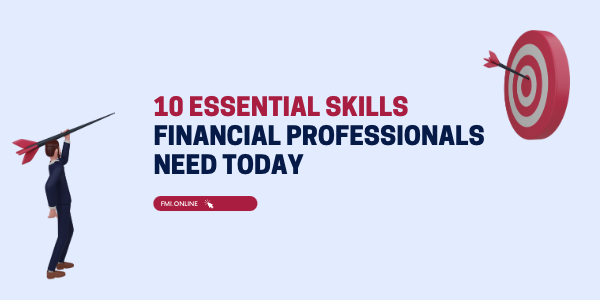Considering the lucrative prospects and growth possibilities involved, investment banking is a tough industry to crack. However, by following a few steps you can improve your odds. One such step is having done relevant finance and accounting courses. It will allow you to demonstrate better knowledge in the domain than your peers, which will set you apart from the crowd. Moreover, it might also help you secure a higher job role in a niche department. Let’s look at some of the must-grab investment banking courses for an aspiring investment banker. All the courses covered in the article can be completed online and offer certifications.
Investment banking pathway
Duration: 60+ hours
Designed to bridge the gap between theory and practice, the investment banking pathway provides students with the skills they need to forge a career in the field. The FMI Investment Banking pathway covers a wide range of career options, offered by top investment banks and helps you better understand what these roles are and the skills required to succeed. It also offers mentor services to boost your application process.
The course is made up of 8 sub-courses including, Introduction to investment banking, Equities overview, Fixed income overview, Introduction to derivative markets, Financial analysis, Excel for finance, Maths for financial markets and M&A simulation.
Advanced Valuation and Strategy – M&A, Private Equity, and Venture Capital
Duration: 16 – 20 hours.
With three levels of difficulty, Erasmus University’s course on Advanced Valuation and Strategy offers an excellent introduction to theory and practice. It goes beyond the use of standard company valuation and DCF calculations and covers expanded NPV, bringing together DCF, real options, and the concept of game theory. The course encourages you to think about strategic questions such as: how do you value a leveraged buyout? How can you value a high-tech venture with negative cash flows? It is helpful for both executives and students interested in the fundamentals of finance and strategy.
International Mergers and Acquisitions Expert
Duration: 30 hours (in-person) or 60 hours (fully online).
Cost: $2,990 (online); $4,990 (in-person).
The course is offered by the Institute of Mergers and Acquisitions (IMAA), which shares an impeccable reputation for producing successful investment bankers. The financial course dives deep into the entire M&A process, covering strategy, company valuation to execution and post-merger integration (PMI). This holistic approach towards M&A differentiates IM&A from other courses on investment banking. The program also includes best practices for cross-border deals, corporate inversions, earn-outs, spin-offs, restructurings, corporate governance, and more opportunities.
This investment banking course, however, has two major drawbacks, the high cost and the requirement of an academic degree as well as some knowledge of financial concepts. This course is more suitable for students coming from a finance-related background and want to break through in investment banking.
Investment Banking Certification from NYIF
Duration: 70 hours
Offered by the NY Institute of Finance, the course offers a comprehensive look at investment banking for interns, analysts and associate-level roles. It covers significant topics such as modelling and analysis of derivatives, company valuations, and deal structuring and execution. The course is well-suited for graduates or professionals who are looking to enter investment banking roles. You also get an opportunity to select a specialisation that prepares you for niche departments or specific roles.
Diploma in Securities and Derivatives
The International Capital Market Association offers a diploma in Securities & Derivative, which includes training on the basic quantitative tools to the fundamentals of analysing fixed income securities to an in-depth analysis on the construction and management of a portfolio of fixed income assets. Students can build an understanding of fixed-income securities such sovereign bonds, investment-grade and high-yield corporate bonds, inflation-linked bonds, securitisations, and covered bonds and the relationship between cash bond and derivatives markets.
Conclusion
If you are interested in a particular topic you can also choose from a bunch of electives to customise the course according to your specifications. Technical Analysis, Convertible Bonds, Behavioural Finance, and Subordinated Debt are some of the electives that you can choose.
